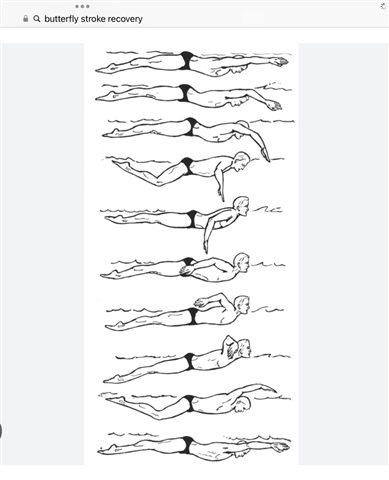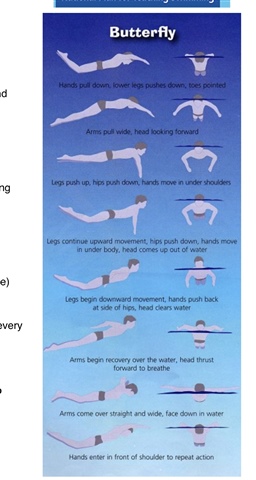Can I get a comment from anyone with some expertise in butterfly. I’m not real proficient at the stroke, and only throw a little bit into my swims just for a bit of variation. I.e. my pool workouts of usually around 3000 meters are just about all free/crawl…I’ll do a 400m IM toward the end just to break things up. So my biggest problem is with the recovery. Maybe I just don’t have the shoulder/arm flexibility, but getting my arms out of the water to throw them forward is difficult. At least with my elbows bent. I get fatigued and then end up “catching crabs” and get sloppy. The thing is, I’ve never really known if my elbows/arms should be straight/horizontal going forward, or should I have them bent and high at the elbow, like you would in a crawl stroke recovery? I look at various graphics depicting the stages of the stroke (two attached)…some show the arm straight. Some so the elbows bent. I think straight would be easier. Is that correct? — Dan



